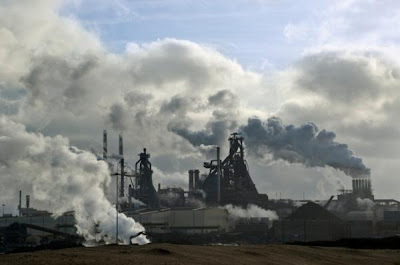 There might be a breakthrough in dealing with greenhouse gases if British scientists findings prove to be right. The Newcastle University team, led by Michael North, Professor of Organic Chemistry, has developed a highly energy-efficient method of converting waste carbon dioxide (CO2) into chemical compounds known as cyclic carbonates. The big deal about this centers on the monies that can be made as Cyclic carbonates are widely used in the manufacture of products including solvents, paint-strippers, biodegradable packaging, as well as having applications in the chemical industry. Cyclic carbonates also have potential for use in the manufacture of a new class of efficient anti-knocking agents in petrol. Anti-knocking agents make petrol burn better, increasing fuel efficiency and reducing CO2
There might be a breakthrough in dealing with greenhouse gases if British scientists findings prove to be right. The Newcastle University team, led by Michael North, Professor of Organic Chemistry, has developed a highly energy-efficient method of converting waste carbon dioxide (CO2) into chemical compounds known as cyclic carbonates. The big deal about this centers on the monies that can be made as Cyclic carbonates are widely used in the manufacture of products including solvents, paint-strippers, biodegradable packaging, as well as having applications in the chemical industry. Cyclic carbonates also have potential for use in the manufacture of a new class of efficient anti-knocking agents in petrol. Anti-knocking agents make petrol burn better, increasing fuel efficiency and reducing CO2As stated before in BRT, solutions are in the lab able to deal with climate change and sustainability. The question about scaling this tech to real world levels and the will to make it happen must be answered if we are to survive as a viable species on planet Earth.

No comments:
Post a Comment